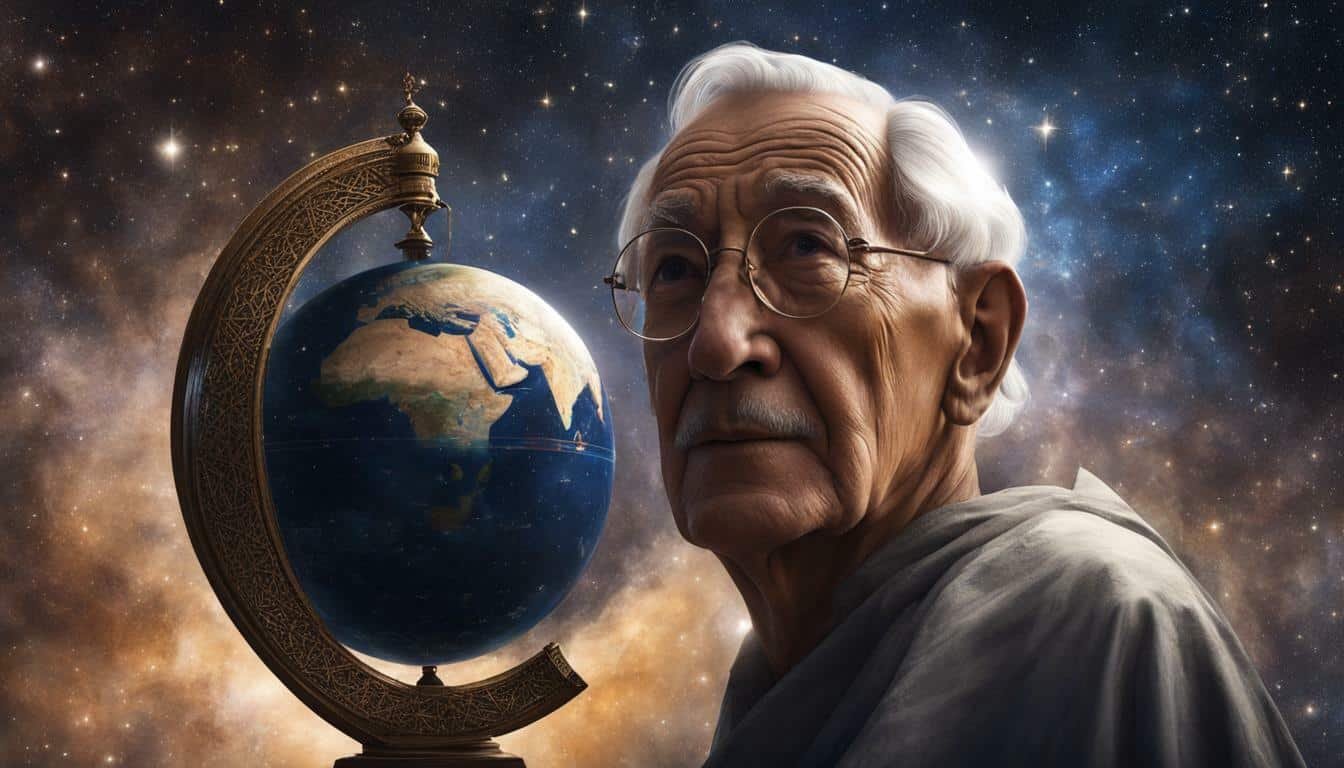Who Is Known as the Father of Astrology?
Astrology, the study of celestial objects and their influence on human affairs, has been practiced for thousands of years. But who is credited with being the founder of this ancient practice? The answer is not so straightforward as several individuals throughout history have played a significant role in shaping astrology as we know it today.
To truly understand the origins of astrology, we must look back to ancient civilizations like the Babylonians, Greeks, and Egyptians. These cultures believed that celestial events and the movements of the planets had a profound effect on human lives. Over time, astrologers developed various techniques and interpretations for these celestial occurrences, paving the way for the birth of astrology.
As astrology evolved over the centuries, prominent figures emerged who contributed to its development and advancement. These pioneers of astrology paved the way for future generations of astrologers and left an indelible mark on the history of this ancient art.
Key Takeaways:
- Astrology has been practiced for thousands of years, with its origins in ancient civilizations like the Babylonians, Greeks, and Egyptians.
- Several individuals throughout history played a pivotal role in shaping astrology, contributing to its development and advancement.
- The pioneers of astrology paved the way for future generations of astrologers and left an indelible mark on the history of this ancient art.
The History of Astrology
Astrology is an ancient practice that has been around for thousands of years. Its origins can be traced back to ancient civilizations such as Babylon, Egypt, and Greece.
In ancient times, astrology was used to predict celestial events and understand the relationship between the planets and human life. It was considered a highly respected practice and was often associated with religion and spirituality.
Over time, astrology evolved and developed into a more complex system. The ancient Greeks were particularly influential in advancing the practice, with notable figures such as Ptolemy and Aristotle making significant contributions to the field.
During the Renaissance, astrology experienced a resurgence in popularity, with many intellectuals and scholars embracing the practice. This period saw the birth of modern astrology, with astrologers developing new theories and techniques that are still used today.
Throughout its long and fascinating history, astrology has been shaped by many influential figures. The pioneers of astrology, such as Claudius Ptolemy and Guido Bonatti, were at the forefront of its development and helped create the foundation for modern astrology.
The Origins of Astrology
The origins of astrology can be traced back to ancient Babylonian times, as far back as the 2nd millennium BCE. The Babylonians were the first to record celestial events and develop a system of astrology that was used to predict future events.
The ancient Greeks also played a significant role in the development of astrology. Greek philosophers such as Plato and Aristotle believed that the movements of the planets could be used to better understand the world and the human experience.
Astrology was also a part of ancient Egyptian culture, with the Egyptians linking certain planets to their gods and using astrology to predict the future.
The Pioneers of Astrology
Claudius Ptolemy was one of the most influential figures in the development of astrology. He wrote a book called the Tetrabiblos, which is still widely regarded as one of the most important works in the field.
Guido Bonatti was another important figure in the history of astrology. He was a 13th-century Italian astrologer who wrote several influential books on the subject.
Other notable pioneers of astrology include Johannes Kepler, who developed the laws of planetary motion, and William Lilly, who is considered one of the greatest astrologers of the 17th century.
Conclusion
Astrology has a long and rich history, with its origins dating back thousands of years. The ancient Babylonians, Egyptians, and Greeks were instrumental in its development, and many influential figures have helped shape the practice over the centuries. Today, astrology remains a popular and respected field, with many people relying on it to gain insight and understanding into the world around them.
The Pioneers of Astrology
Throughout history, there have been many individuals who have made significant contributions to the field of astrology. These astrology pioneers have played important roles in shaping the practice and advancing our understanding of the cosmos.
One such pioneer is Claudius Ptolemy. Ptolemy was a Greek mathematician and astronomer who lived in the second century AD. His work, the Tetrabiblos, is considered one of the most important astrological texts of all time. In this book, Ptolemy outlined the principles of astrological interpretation that are still used today.
Another significant figure in the history of astrology is Abu Ma’shar. He was a Persian astrologer who lived in the 9th century AD and is known for his work in horary astrology. Abu Ma’shar’s works, which included the Great Introduction to Astrology, helped to popularize astrology in the Arab world and beyond.
These early astrologers paved the way for future generations of astrology experts. William Lilly, a 17th-century English astrologer, is one such example. Lilly’s work, Christian Astrology, is considered one of the most influential astrological texts in the English language. It is still studied and referenced by astrologers today.
Other notable astrology pioneers include Dane Rudhyar, who was instrumental in bringing astrology to mainstream audiences in the 20th century, and Liz Greene, whose books and writings have helped to modernize and redefine astrology for contemporary audiences.
Overall, the contributions of these astrology pioneers have helped to shape astrology into the practice we know today. Their works and theories continue to influence and inspire astrologers around the world.
The Father of Astrology
While astrology has roots in ancient civilizations, one person is widely recognized as the father of astrology – Claudius Ptolemy. Ptolemy was a Greek astronomer, mathematician, and astrologer who lived in the 2nd century AD.
Ptolemy’s contributions to astrology were significant. He wrote the Tetrabiblos, a four-part treatise on astrology that discussed the theoretical basis of astrology, its techniques, and the interpretation of astrological phenomena. The Tetrabiblos became one of the most influential books on astrology and was widely read throughout the medieval and Renaissance periods.
Ptolemy was also an innovator in the field of astrology. He introduced several new concepts, such as the use of the Ascendant and Midheaven as significant points in a horoscope and the importance of planetary aspects in interpreting astrological charts.
While Ptolemy was not the only person to contribute to the development of astrology, his work was instrumental in shaping the field and his ideas continue to influence astrologers today. His role as the father of astrology is a testament to his lasting impact on this ancient practice.
Conclusion
Now that you have learned about the origins and pioneers of astrology, you may be wondering who is known as the father of astrology. After exploring the history and evolution of this ancient practice, it is widely recognized that Babylonian astrologer, astrologer, and astronomer, Enkidu, is considered the father of astrology, having laid the foundations for the field.
Today, astrology remains a popular and relevant practice for those seeking guidance and understanding of themselves and the world around them. Whether you are a skeptic or a believer, astrology offers insights into personality traits, life patterns, and potential future events.
So, whether you are looking to learn more about yourself or simply curious about this ancient practice, astrology has something to offer everyone. With its enduring relevance, it is clear that astrology will continue to captivate and intrigue people for generations to come.
FAQ
Q: Who is known as the Father of Astrology?
A: The father of astrology is widely recognized as Ptolemy, a Greek mathematician, astronomer, and astrologer who lived in the 2nd century AD. He wrote the influential book “Tetrabiblos,” which became a cornerstone in the development and understanding of astrology.
Q: What is the history of astrology?
A: Astrology has a long and rich history, dating back thousands of years to ancient civilizations such as Mesopotamia, Egypt, and Greece. It has evolved and adapted throughout the ages, influenced by different cultures and belief systems, and continues to be practiced and studied today.
Q: Who were the pioneers of astrology?
A: There have been many pioneers in the field of astrology who made significant contributions to its development. Some notable figures include Claudius Ptolemy, Abu Ma’shar, William Lilly, and Alan Leo. These individuals helped shape the foundations of astrology and paved the way for future generations of astrologers.
Q: Who is considered the Father of Astrology?
A: Ptolemy is widely regarded as the father of astrology. His work on astrology, particularly “Tetrabiblos,” laid the groundwork for the field and had a lasting impact on its evolution. His theories and methodologies continue to be studied and used by astrologers today.
Q: What is the significance of astrology in our modern world?
A: Astrology continues to be a popular and widely practiced belief system and tool for self-reflection. Many people find value in astrology as a way to gain insights into their personalities, relationships, and life events. It offers a unique perspective and promotes self-discovery and personal growth for individuals.







